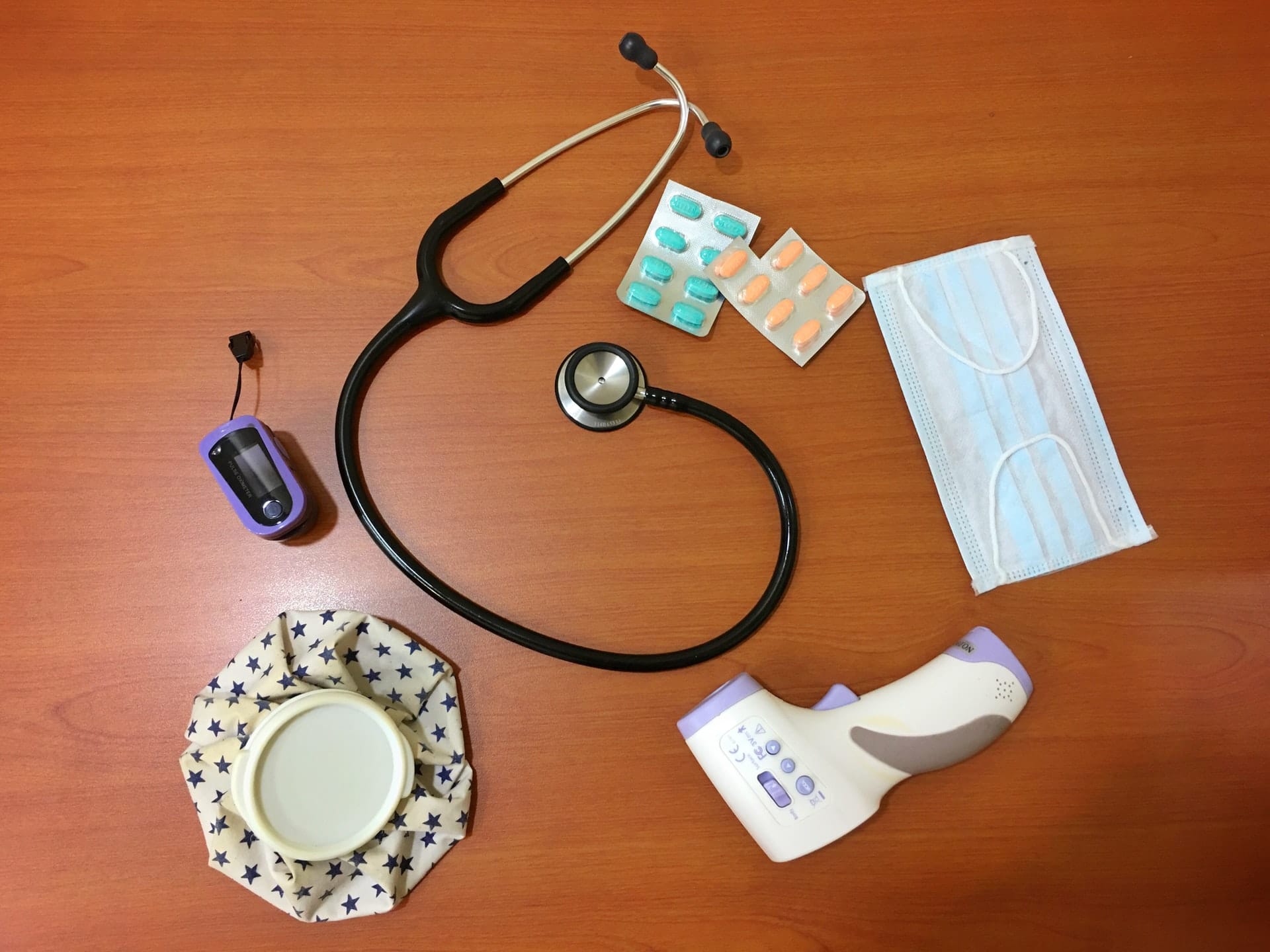It is widely believed that in the winter-spring period immunity decreases, because of this a person gets sick with ARVI more often. Therefore, immunity needs to be raised by taking various immunomodulators, as well as using folk remedies. We decided to check whether this idea about our immune system is scientifically correct.
For the query “how to boost immunity” Google issues more than 1.5 million results. The Internet advises accept vitamins - as per separately, and in composition multivitamin complexes, drink courses substances, called immunomodulators, regularly There is onion, garlic, drink tea with honey, use folk medicines, such as mumiyo, cleanse the body of slag, toxins and parasites And populate intestines with beneficial bacteria.
Immunity called the body’s ability to recognize “self” and “foreign”, remove from the body potentially dangerous foreign substances and cells of pathogenic bacteria and viruses, as well as its own modified tumor cells. Immunity can be congenital or acquired. Innate immunity is provided by phagocytic cells (eg, neutrophils, monocytes, macrophages), innate lymphoid cells (eg, natural killer cells, NK), and polymorphonuclear leukocytes. T cells and B cells are responsible for the functioning of acquired immunity. The organs of the immune system also include the red bone marrow, thymus, or thymus gland, spleen and lymph nodes. The work of the immune system can be compared to the police: it maintains law and order in the body, tracks violators, maintains a database of their identikit photos, and, if necessary, detains criminals and isolates them.
There are three large groups of problems in the functioning of the immune system: allergies, autoimmune diseases and immunodeficiencies. Allergy occurs when the immune system mistakes a harmless protein (for example, from birch pollen or orange) for a dangerous pathogen and begins to overreact to it. At autoimmune diseases The immune system attacks its own healthy cells instead of pathogens. These diseases include autoimmune thyroiditis, polyneuritis, multiple sclerosis, systemic lupus erythematosus, rheumatoid arthritis, secondary thrombotic thrombocytopenic purpura (Moschkowitz's disease) and Goodpasture's syndrome.
Immunodeficiencies are primary and secondary. Primary - a group of hereditary diseases (for example, DiGeorge syndrome, Wiskott-Aldrich syndrome, hyper-IgE syndrome or bald lymphocyte syndrome). All of them predetermined genetically and appear from infancy or early childhood and cannot arise just like that, from the change of seasons. Secondary Immunodeficiencies occur against the background of serious diseases (HIV infection, diabetes), adverse environmental effects (for example, ionizing radiation), and the immunosuppressive effect of certain drugs (during chemotherapy, radiation therapy, preparation for or after transplantation). In this case, therapy for secondary immunodeficiencies focuses on treating or compensating for the development factor of immunodeficiency, and not on raising the immunity itself. Moreover, secondary immunodeficiencies are characterized not so much frequent colds, but severe bacterial infections requiring hospitalization (for example, pneumonia), fungal infections of the mouth, eyes and gastrointestinal tract and the formation of purulent ulcers on the skin.
The likelihood of contracting ARVI or influenza depends entirely on factors other than the “strength of the immune system.” Basic defining factors whether a person gets sick or not after contact with a pathogen is the contagiousness of the virus itself (R number - a characteristic of the virus itself, which is in no way related to immunity), the number of viral particles that enter the body upon contact, as well as the presence or absence of acquired immunity to the virus. The last factor plays a key role. Whatever loading dose of a maximally contagious virus (for example, chickenpox) a person whose immunity is already familiar with it (as a result of a previous illness or vaccination) receives, he will most likely won't get sick. The fact that someone gets colds more often than others, testifies, most likely, not that his immunity has dropped, but that this person has not been in contact with these strains of the virus before. Just like the increase in the incidence of influenza in the autumn-winter period primarily occurs not because people’s immunity drops en masse, but because the virus spreads better in cold and dry air.
Finally, let’s look at various means that are actively advertised to boost immunity. Unreasonably taking vitamins is not only useless, but can also be dangerous. In particular, the main people's protector against colds is vitamin C, according to Cochrane review (a key source of information on evidence-based medicine), "had no effect on the incidence of colds in the general population, based on 29 comparisons from clinical trials involving 11,306 participants." Shlakov doesn't exist, and our liver and kidneys do an excellent job of removing toxins. Onions, garlic, lemon, honey and other foods didn't show no effect for the prevention of colds. Data confirming the therapeutic effect of mumiyo from modern evidence-based medicine also no.

As for immunomodulators, such a class of drugs does exist. They are also called immunostimulants. First of all, these include interferon. Within the framework of evidence-based medicine, it apply in injection form for chronic hepatitis B and C, acute hepatitis C, HIV infection and some cancers. No no evidence efficiency drops, ointments, sprays and other forms of administering small doses of interferon for prevention flu and colds, as well as to improve immunity. Such drugs registered in Russia as “Imudon”, “Broncho-munal”, “Polyoxidonium”, “Arbidol”, “Anaferon”, “Viferon”, “Kagocel”, “Ingavirin”, “Ergoferon” are mistakenly included in the group of immunomodulators. None of them No clinically proven efficiency, efficiency demonstrated in randomized placebo-controlled trials, carried out on the basis of serious and independent medical institutions. In addition, some of these drugs homeopathic, that is pseudoscientific and obviously not working. It's funny that, for example, "Kagocel" in one research showed less effectiveness in the prevention of colds than Ergoferon, despite the fact that the second is, in principle, a homeopathic drug, that is, it does not contain any active substance.
About drugs positioned as immunomodulators, spoke out famous pediatrician Evgeny Komarovsky: “But strengthen the immune system? No, it's not possible at all. This is such a semi-scientific, I would even say, charlatan fairy tale, which allows us to sell drugs to improve immunity in huge quantities, but the essence of these drugs - all drugs to increase immunity - is only one: they greatly strengthen the well-being of those who produce, sell, advertise, and so on.”
Epidemiologist and President of the Society of Evidence-Based Medicine, Professor Vasily Vlasov draws attention to the fact that “the very concept of lowering immunity and the possibility of increasing it is an ugly simplification of knowledge about the complex immune system. None of the immune stimulants like levamisole, Timalin, Amiksin - there are many of them on the Russian market - have convincing evidence of usefulness, unless, of course, the manufacturer’s profit is considered beneficial.” Agree with him is Alexander Hadjidis, chief clinical pharmacologist of St. Petersburg: “Immunity is a dark and mysterious matter. What is its activation? New B and T cells are formed, they gain new competencies and begin to fight the virus or microbe. But when we talk about taking an immunomodulatory drug for five to seven days (the course of treatment with them is designed for this period), we understand that in such a short time the cells simply could not react to the virus and begin to work as the drug manufacturers describe; this time is not enough to develop an effective clone of specialized immune cells. At the same time, five to seven days is the period during which the body itself is able to cope with the virus and remove it from the body.”
Populating the intestines with beneficial bacteria to prevent colds is also a thankless task. American explorer Sherwood Gorbach countedthat all bacteria consumed with food either die from hydrochloric acid in the stomach during digestion, or remain in the body for no more than one or two days. Convincing data To date, there is also no evidence that probiotics are effective for the prevention or treatment of colds, as well as for immunostimulation.
Thus, immunity is a complex multicomponent mechanism that does not fall on its own with the change of seasons. Various immune diseases are well known to doctors and have clear treatment protocols. At the same time, in the treatment methods there is no mention of folk remedies, nor the removal of toxins and wastes, nor lactobacilli and probiotics, nor various pharmaceutical substances posing as medicines. Most of these substances either do not contain any active ingredient or have not been shown to be effective for the prevention and treatment of seasonal colds.

Not true
Read on the topic:
- Is it true that vitamin C helps cure colds?
- Is it true that the body needs to detox to remove toxins?
If you find a spelling or grammatical error, please let us know by highlighting the error text and clicking Ctrl+Enter.






